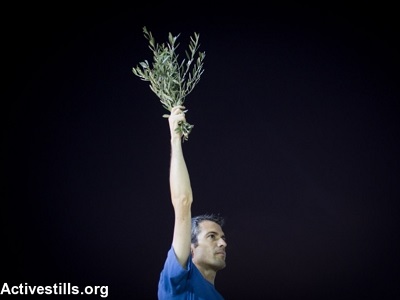
By Rachel Astarte
In Jerusalem
There is a quiet I am looking for
from bulldozers
from blastings
from smoldering anger
There is a place I have never seen
although I have imagined it during
childhood Passover seders. The ones
when my Sicilian father,
having embraced my mother’s ethnicity
as his own, hid the afikomen
almost always under the cushion
of his favorite chair
and rewarded my sisters and me
with half-dollar coins when we found it.
There was a man I used to see
whose family was from Jordan.
One morning, he said of his own lips:
Rachel, these are your lips.
We come from the same people, after all.
There is a joy I am looking for
like the moment something lost has been found
like the middle of a kiss
like home.
Next year,
maybe
next year,
in Jerusalem.
Offerings
Haji Ali Mosque
Last morning in Mumbai
I go to the mosque.
My sandals taken by the boy
who squats in dust. He points left.
This is where I belong. With the women.
Inside, I wait my turn
to hand over my marigold offering,
first peeling back their newspaper shroud.
My bundle is tossed onto others, identical
but for my burst of color, covering
the remains of Haji Ali.
Behind me, a woman’s tss. I turn
to see what infraction I must have committed.
But my startled face makes her smile. She waves
a dismissive hand.
I sit. Around me
women and children come and go.
Through the latticed wooden wall
I watch the men. They are
allowed near the shrine, allowed to touch
its precious edges.
I think of leaving, but can’t.
So in the heat and the flies
I begin to pray.
My father, dead now
nearly two years, comes to me.
We’d sat in his cabin and listened
to a recording of the Call to Prayer
because it reminded him of early mornings
in Turkey where he spent a year
as a young man teaching English.
He was dying the night we heard
that crimson call.
Something deep within us rising.
Now, my head bowed and shrouded, I weep.
When this sadness passes, there is
nothing left of me.
I gather up what I remember —
I am a Jew.
Sitting here.
A woman. Sitting here
with women, relegated as we are
to the side, behind
the metal offering boxes, walled off
from the other half, the holy
— and I pray for peace.
Afterwards, I place my forehead
to the ground, kiss the marble floor
and back out, touching the threshold
once
then my eyes.
I collect my sandals from the crouching boy,
adjust my headscarf.
Suddenly I realize the error of my offering.
The flowers were to remain wrapped.
But I had unveiled them,
set the blossoms free
one last time.
Knesset Eliyahoo
Hours later, I visit the synagogue.
Three women, their ages the phases of the moon,
sit at the entrance.
Sephardic or Ashkenazi? Full Moon Woman asks me.
Ashkenazi.
She raises an eyebrow.
This is a Sephardic synagogue.
I ask, risking the cheek of it,
Isn’t it all the same?
She gives a look to the elder
waning in afternoon heat
then sends me upstairs with the girl.
They’ll open the temple, she says. Just for me.
The girl is pleased for the company. She throws open
the doors, switches on ceiling fans
as I wander on mosaic tiles, marveling
at bright blue walls
at the stained glass
flowerbursts everywhere.
We sit on a pillowed bench, the girl and I.
She confesses she is Catholic.
She works here, making sure
the synagogue is kept clean. If it’s not
she gets yelled at.
It’s clean, na?
Waxing girl. Her moon face shines with hope.
Yes, I assure her. It is clean.
Relieved now, she talks of marriage.
She prays for a husband
to deliver her from a houseful of siblings.
While she talks, her eyes
grow round. They are fixed
on one of my hands,
the lavender jade ring I never remove.
I tell her this stone brings inner clarity.
Peace, I say, putting a hand to my chest.
She nods. When you come back to India
you’ll bring me one.
I remove the ring
take her slender hand
slip it onto her middle finger.
Mechanically the girl protests, but
she’s already cradling
her adornment, declaring
with sweet certainty
she will pray to get fat.
As I leave, the girl lingers
on the staircase. She calls out:
Don’t forget me. Promise
you won’t forget me.
She tells me
her name is Blossom.
– Rachel Astarte is a transformational life coach, award-winning author, and Palestinian-Israeli peace activist. A former board member of Women in Black (NYC), Rachel hosts events and lectures on the topic of employing the arts as a means toward conflict resolution. Visit her website.




